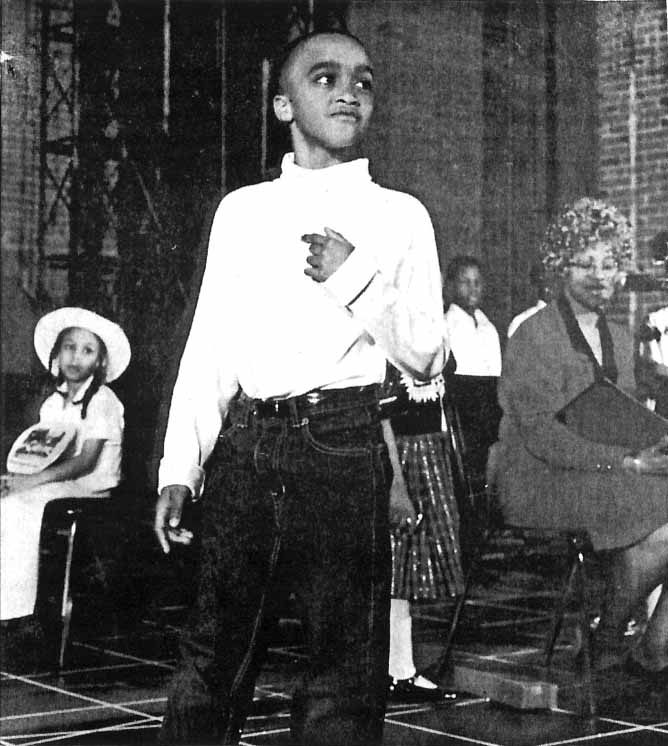
MEDIA CURRENTS
'MY GRANDMA ROCKS!': NYC SCHOOLCHILDREN HONOR ELDERS

|
by Judith Keller
"When I was six months old, my parents sent me to China
where I lived with my grandmother... for six years...
My parents had to live in the U.S...
People say the first few years of a child's life [are]
the most influential... Well, through the first six
years of my life, my grandmother influenced me for the
rest of my life."
-- Ruby Choi, a 10th grader at Midwood High School, Brooklyn "At the age of 17, [my grandmother] got married to my grandfather and has been married for 46 years. My grandfather is an Italian-American just like my grandmother... Loving a grandmother like [mine] is easy because she makes it that way. She is always there with a shoulder to cry on and a voice to comfort. With her around, I always feel safe." -- Jacklyn Stringham, a 2nd grader at P.S. 63 in Queens As the school year was coming to an end in spring 2001, "Giving Honor to Our Elders" was the theme of a remarkable, daylong celebration of the talent and creativity of New York City's public school students as they paid homage to their elders through essays, dance, plays, poetry, art, and song. The host for the event, the Joseph Papp Public Theater in Manhattan, overflowed with students, their proud elders, their families and their friends. "Giving Honor to our Elders" was part of the Citywide Arts Initiative program, sponsored by the United Way of New York City in partnership with community-based organizations and elementary, middle and high schools in four of New York's five boroughs (Staten Island chose not to participate). The project director, Danny Morris of United Way, explained that the spark for the theme of aging was the recent book, Elder Grace: The Nobility of Aging by Chester Higgins Jr. (New York City: Bulfinch Press/Little brown 2000) and the accompanying New York Historical Society photography exhibition. (See "Divine Works in Progress: The Elder Grace of Chester Higgins Jr.," Aging Today, January-February 2001.) ESSAY CONTEST A highlight of the day at the Public Theater was the presentation of awards to winners of the "Elder in My Life" essay contest. The awards were presented by elders from the community and from a panel of older judges. Each borough honored four top winners who received $200 and a medal. The judges also awarded three citywide honors: $1000 for first place, $750 for second, and $500 for third. |

During the "Giving Honor to Our Elders" celebration in spring 2001, Chris Rambaran, a student at PS 109 in Brooklyn, N.Y., portrayed poet Langston Hughes in a tribute to elders titled "Thanks for the Memories." |
Judith Keller is a playwright and an award-winning film and video maker
of short dramas for staff and residents in long-term care and for
students in gerontology.
She heads Tricepts Productions in New York City.
Among her productions is
Rose by Any Other Name,
about an older woman's search for
closeness, privacy and love in an institutional setting.
Visit her web site at
www.tricepts.keller.com.
|
||
|
Sixth-grader Amaudis Heredia of Bronx Middle School 222,
took third place citywide by writing "My Grandma Rocks!"
about his grandmother in the Dominican republic (grandmothers
were the students' most frequently-chosen subjects
with grandfathers a not too close second.)
The essay contest did not merely ask students to extol their
essay subjects.
Teachers were given a resource manual that the New York
Historical Society prepared; the object of the contest,
the publication stated was "to bring the subject of aging
into the classroom and allow students to consider the importance
of older people in their lives."
In classrooms for example, the students learned interview
techniques to use in questioning their chosen elders.
|
Several judges said their job wasn't easy.
Some of the most passionate and captivating essays
were the most difficult to evaluate strictly by
rigid rules.
Many students were recent immigration with
English language difficulties.
Fortunately, there was a space on the score sheets
for judges' comments.
|
|||